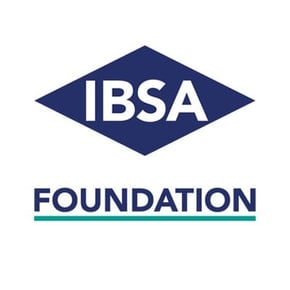When talking about well-being and youth identity, it is essential to create spaces for discussion and reflection. This is exactly what happens with HappyLab, part of the Happiness2.0 project and the broader Let's Science! An engaging and stimulating experience that alternates theoretical and practical moments, inviting participants to explore issues crucial to their personal growth.
From 22 to 26 April and from 23 to 27 September 2024, IBSA Foundation hosted the first two weeks of ‘HappyLab’ at its headquarters in Casa Carlo Cattaneo.
The initiative, proposed as part of the Happiness2.0 project, in collaboration with USI - Università della Svizzera italiana and supported by the Swiss National Science Foundation (SNSF), involved over 400 students from high schools in Locarno, Bellinzona, Mendrisio and Lugano, as well as young people from the Amilcare Foundation, with the aim of exploring the theme of well-being in the digital context, encouraging reflection on subjective happiness, personality development and the importance of social relations.

The experts involved
The workshops were run by experts specialised in psychology and communication who led the discussions and activities by drawing on their experience and skills:
- Laura Marciano, a research associate at Harvard University, and the person in charge of the Happiness2.0 project;
- Dario Gennari, psychologist and psychotherapist at the Rete Operativa health clinic;
- Lorenzo Varriano, clinical psychologist at Rete Operativa health clinic;
- Pietro Bianchi, psychology graduate and research assistant in the Happiness2.0 project at USI;
- Alessia Robbiani, clinical psychology student and research assistant in the Happiness2.0 project at USI.
IBSA Foundation director Silvia Misiti presented the event, along with the Foundation’s team: Jacopo Crespi, communication specialist, Sara Comodo, administration and events manager, Nicole Nasta and Giorgia Zucchelli communication interns.
Social media under scrutiny, with discussions and an experiment
During the theoretical part of the event, Laura Marciano presented the results of some research on the influence of social media on the lives of adolescents. Participants were able to share their opinions on this topic through anonymous voting, encouraging an open and honest dialogue. Furthermore, the experiment ‘One of your peers is watching you’ highlighted how the human brain, specifically that of adolescents, is particularly stimulated when it comes to the opinion of others, especially in relation to people of the same age.

One, none, or one hundred thousand masks
So many masks were worn by Vitangelo Moscarda, protagonist of Luigi Pirandello’s most famous work, ‘One, None, and One Hundred Thousand’. And so many are worn by young people today!
They are the ones, in the debates, who tell about hiding behind filters on social media, for fear of not being accepted or understood and running multiple social accounts, in a paradoxical game of masks.
'I’ve got two accounts: a serious one and another where I don’t post that much. When I post photos in the private one with my friends, I don’t worry about whether or not I look good. It’s more fun using that one with friends.’ (One participant)
And it was precisely through play, with each person creating their own mask, that the event gave participants the chance to explore the complex notion of identity in a tangible way. The colourful masks made during the workshop became powerful visual symbols of the many-sided Self carried within each participant, both consciously and subconsciously. This experience prompted inner dialogue and an exchange with the group about the meaning of being truly oneself in a world dominated by external expectations and influences.

The pyramid of happiness
The workshops concluded with a reflection on the concept of flourishing and well-being, exploring the various perspectives related to happiness. The children were invited to reflect on the question ‘What does it mean to you to be happy?’ and to share their thoughts on magnetic notepads, ranking them according to importance for their own well-being within a value pyramid.

In the age of social media, the pursuit of happiness is intertwined with the management of our online image. The virtual world becomes a stage where people can choose how they show themselves and what they reveal about themselves to others. In this context, masks can help, making one feel safe from judgement and criticism, and giving the more shy the courage to express themselves and show sides of themselves that would otherwise remain hidden.
The use of filters and masks should not be condemned a priori. According to psychologists, these tools are not only expressions of vanity, but can also be powerful means of personal expression and, if used with awareness, do not prevent the building of authentic and meaningful relationships.

